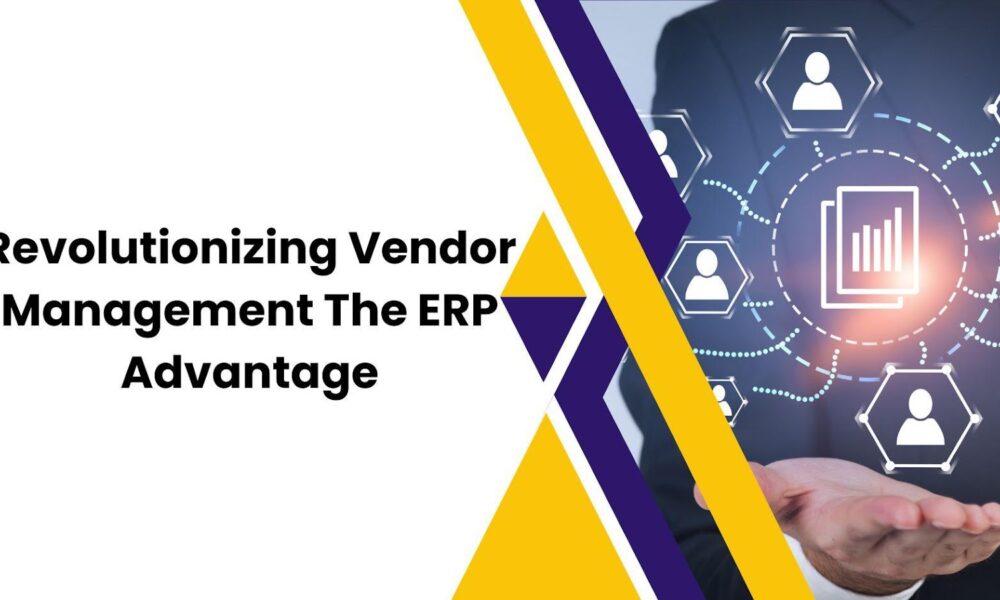Share
Share
Share
Share
In the era of digital transformation, Enterprise Resource Planning (ERP) systems are revolutionizing vendor management, streamlining procurement processes, and enhancing operational efficiency across industries. By integrating real-time data, automation, and advanced analytics, these systems optimize vendor relationships, mitigate supply chain risks, and ensure seamless collaboration. Desi Ramananda Kishore Katuri‘s research highlights how ERP-driven vendor management is not only reducing costs but also fostering agility and resilience in an increasingly competitive marketplace.
The Evolution of Vendor Management
Traditional vendor management relied on manual tracking and disconnected systems, causing inefficiencies, errors, and compliance risks. Legacy approaches led to high error rates, with document processing inaccuracies reaching 31.2%. Organizations spent excessive time reconciling vendor records, reducing overall efficiency. ERP-based vendor management revolutionized these processes by automating workflows, standardizing operations, and integrating real-time analytics. This shift enhances accuracy, reduces compliance risks, and improves decision-making, allowing businesses to manage vendors more effectively and optimize procurement strategies.
Automated Workflows: A Game Changer
Modern ERP systems eliminate fragmented, paper-based processes through automation, dramatically reducing administrative workloads. Research shows that automated vendor onboarding has slashed processing times by 78.4%, while standardized workflows have cut approval cycles from 15.3 days to just 2.1 days. Additionally, contract automation—a crucial ERP feature—has reduced renewal oversights by 94.2%, preventing costly service disruptions. By streamlining operations, ERP-driven automation enhances efficiency, minimizes errors, and accelerates decision-making, making vendor management more agile and effective in today’s competitive business landscape.
Enhancing Data-Driven Decision Making
ERP systems have enhanced data visibility and decision-making, enabling real-time performance monitoring that improves supplier quality metrics by 43.2% and reduces supply chain disruptions by 56.7%. Organizations using ERP analytics report an 88.9% boost in forecasting accuracy and a 72.4% improvement in vendor risk assessment. These systems provide deeper insights, allowing businesses to proactively address challenges, optimize procurement, and strengthen supplier relationships, ultimately driving efficiency and resilience across supply chain operations.
Strengthening Compliance and Risk Management
Regulatory compliance poses a major challenge for organizations, but ERP-driven vendor management reduces risks through automated tracking and reporting. Studies show a 96.3% drop in compliance violations and an 82.7% reduction in audit preparation time for companies using ERP solutions. Additionally, vendor-related risk incidents have decreased by 67.9%, improving overall operational stability. By streamlining compliance processes and enhancing risk management, ERP systems help organizations maintain regulatory standards efficiently while minimizing disruptions and ensuring long-term business resilience.
Overcoming Implementation Challenges
Despite its advantages, ERP implementation comes with challenges such as high costs, integration issues, and user resistance. Small and medium enterprises (SMEs) often face financial barriers, with implementation costs ranging between $150,000 and $750,000. However, the rise of cloud-based ERP solutions and modular pricing models has made these systems more accessible. Subscription-based ERP platforms have reduced adoption costs by 35–40%, making them viable for businesses of all sizes.
The Future of ERP in Vendor Management
Emerging technologies such as artificial intelligence (AI), blockchain, and advanced analytics are shaping the next generation of ERP-driven vendor management. AI-powered predictive analytics enhance supplier performance tracking, achieving 94.7% accuracy in delivery timelines and reducing supplier-related incidents by 76.5%. Blockchain integration is revolutionizing contract management, cutting dispute resolution time by 89.3% and improving transaction transparency by 94.8%.
In conclusion, the integration of ERP systems in vendor management has delivered significant improvements in efficiency, compliance, and cost savings. While implementation challenges remain, the continuous evolution of AI-driven analytics and blockchain technology ensures that ERP platforms will play an even greater role in procurement and supplier relationship management. As Desi Ramananda Kishore Katuri highlights, ERP-driven vendor management is a transformative force shaping the future of global business operations.










